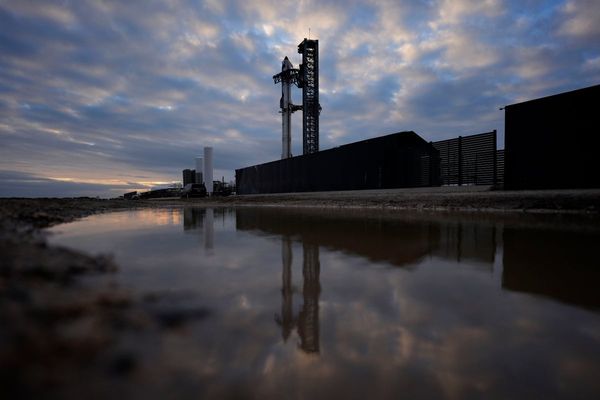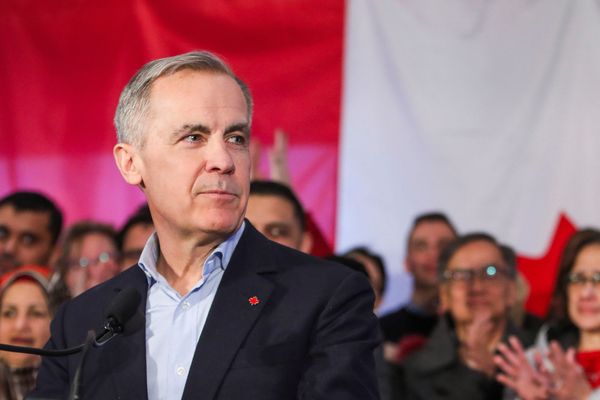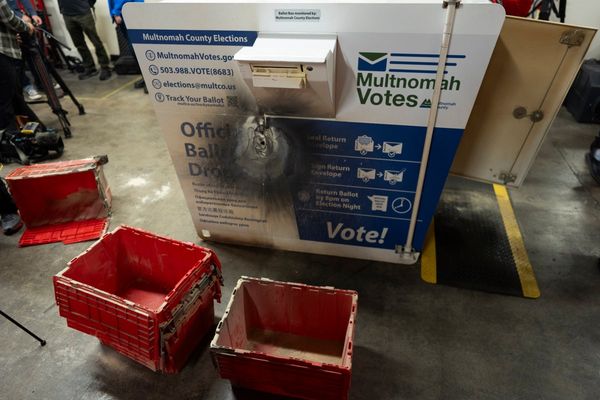
When Mustafa al-Kadhimi was sworn in as Iraq’s new prime minister on May 7, one of his main pledges was to bring every armed group in the country under state control, after almost two decades of nonstate actors wielding significant influence over the government.
Recent arrests in Baghdad show just how difficult that will be.
Overnight on June 25, members of the Iraqi Counter-Terrorism Service raided the southern Baghdad headquarters of the Popular Mobilization Units (PMU), a state-sponsored umbrella organization that includes several quasi-independent paramilitary groups. They arrested over a dozen members of the PMU’s 45th Brigade, which answers to the Iran-linked Shiite armed group Kataib Hezbollah.
Kataib Hezbollah is controversial in Iraq because it has long received funding, training, and other forms of support from Iran’s military and religious establishments and it makes no secret of its loyalty to Iran’s supreme leader, Ayatollah Ali Khamenei. It has been accused of engaging in extrajudicial activities, killing and kidnapping protesters, activists, and other civilians. The United States officially designated it a terrorist organization in 2009 for “committing or posing a significant risk of committing acts of terrorism.”
The June arrests came in the wake of repeated attacks on Iraqi facilities hosting international coalition troops, presumably by armed groups linked to Iran operating around the country. Details of this particular raid are murky, but most of those detained had been released by June 29.
A statement issued by the Iraqi Army’s Joint Operations Command claimed that 14 “defendants” had been arrested, noting that “[a]ccurate intelligence was available on people who had previously targeted the Green Zone and Baghdad International Airport with indirect fire several times.”
Kataib Hezbollah spokesperson Jaafar al-Husseini told Foreign Policy in a WhatsApp voice message that those who had been arrested were involved in logistical support for the group. He warned that “there is no local, regional, or international power that will be able to take the weapons out of the hands of the muqawama,” referring to the “resistance” axis spanning from Iran to Lebanon. He accused Kadhimi of simply “trying to impress the Americans.”
Kataib Hezbollah is widely considered the greatest challenge to the Iraqi government’s aspirations to exert a monopoly of force over its territory, and moves against it will likely serve as a test case for other Iran-linked groups operating in the country.
The PMU was officially formed in June 2014 through a fatwa issued by Grand Ayatollah Ali al-Sistani after the Islamic State took over the Iraqi city of Mosul and has since been incorporated into the state’s official forces. The group was deployed widely by the government during its campaign against the Islamic State and played a significant role in retaking large swaths of Iraqi territory. Despite the government’s attempt to extend its authority over the organization, many of its affiliated groups continue to operate at least partially outside of state control.
In its attempt to exert the state’s authority, the government has granted the PMU some of the protections and benefits usually reserved for other national forces, such as the right to an internal judge and court, as well as government salaries and pensions. The aim of these initiatives, presumably, is to absorb some of the moderate elements more deeply into the state and, therefore, bring them under tighter government control.
There are other signs that Kadhimi’s government is working to undermine the influence of individual PMU factions that continue to act autonomously. Foreign Policy reported in May that four PMU groups linked to Iraq’s holy shrines “would be placed directly under the prime minister’s office,” signaling “an attempt to draw some of the factions from the more than 100,000-strong motley fighting force further away from Iranian and Kataib Hezbollah influence.”
Kadhimi’s government is also prepared to crack down on their resource stream. Smuggling has long been a lucrative source of income for whoever controls unofficial routes between Iraq, Syria, and Iran, and sources on Iraq’s western border said smuggling routes in the area have been controlled by Iran-linked nonstate actors since the defeat of the Islamic State there in 2017. Many of these groups have been accused of partially using these activities to fund themselves.
On July 11, Kadhimi visited Iraq’s Mandali border crossing with Iran as part of a campaign to fight corruption in the customs services. “The first phase [of this campaign] is to protect border crossings with new security forces,” Kadhimi said during his visit. “The second is to fight ‘ghosts’ trying to blackmail Iraqis,” he added, using a term that has at times been used to refer to Kataib Hezbollah.
Days later, the Joint Operations Command announced that one of its regional commands would be tasked with patrolling the Shalamcheh border crossing with Iran as well as the Safwan crossing with Kuwait. The statement noted that the regular Iraqi Army would continue to bolster those border crossings, signaling the government’s seriousness in controlling its borders and undermining one of the PMU’s principle sources of power.
Unlike some of his predecessors, Kadhimi has broad political support. Ammar al-Hakim, a prominent Shiite cleric, recently formed a coalition containing around 40 members of parliament to support the prime minister, who also commands the largest political grouping in parliament.
Hakim heads the National Wisdom Movement, a major Islamist political coalition, and led the influential Islamic Supreme Council of Iraq from 2009 to 2017. He wrote an op-ed on July 20 stating that all military activity outside the state must be banned in what appeared to be a response to armed groups shooting rockets at Baghdad’s Green Zone and other such attacks in recent months.
Though he had initially supported Kadhimi’s predecessor, Adil Abdul-Mahdi, Hakim turned on him last year and called anti-government protests across several provinces in July 2019, which were followed a few months later by major protests that brought down Abdul-Mahdi’s government. Hakim’s standing in the country—but especially in Iraq’s Shiite community—could give Kadhimi critical support in his effort to curb the power of independent Shiite militias.
If nothing else, Kadhimi has much of the public behind him and could leverage that support over his opponents. Since taking power in May, Kadhimi has boosted his government’s image in the public eye. He reinstated the immensely popular counterterrorism chief, Abdul-Wahab al-Saadi, whose dismissal fueled anti-government protests in late 2019 and sent the country into crisis. This move alone helped him restore much trust among both military personnel and the general population. More than that, many people consider nonstate militias to be an increasing threat to peace and stability, and Kadhimi’s efforts to bring them under control are in line with the demands of many ordinary Iraqis.
But the militias won’t go easily. The leader of another PMU-affiliated group, Asaib Ahl al-Haq’s Qais al-Khazali, gave a televised statement responding to the arrest of Kataib Hezbollah personnel in which he warned Kadhimi against getting involved in any issues other than preparing the country for early elections and handling the economic and health matters that Iraq is suffering from. The implication was that armed groups should continue to be autonomous from the state.
Khazali stressed that Kadhimi would not be able to stop the attacks on U.S. forces in Iraq by the “resistance factions” and openly stated that the previous governments had all “ignored this issue because they knew they couldn’t touch it.” The armed group he leads has been accused of being involved in the killings of protesters and activists during the recent anti-government protests.
On the political front, bringing Hakim onside is a significant development, but Kadhimi will need to find more allies. Although the PMU’s parliamentary Fatah Alliance gave its support to the government, its leader, Hadi al-Amiri, made it clear that it was conditional on holding early elections and removing U.S. forces. He further warned that his support could be withdrawn at any time. While there are many political figures who want to see a stronger, more stable Iraq and would be willing to work with Kadhimi, there are still others who prefer to keep the country’s armed groups outside of state control.
Kadhimi is walking a tightrope, and he must balance the opinions of the public, the military, other politicians, and, of course, Iran in order to cement the Iraqi state’s legitimacy and authority. It won’t be easy, but Kadhimi’s standing in the country coupled with his efforts thus far suggest he is better placed to move toward a state monopoly on violence in Iraq than his predecessors.







